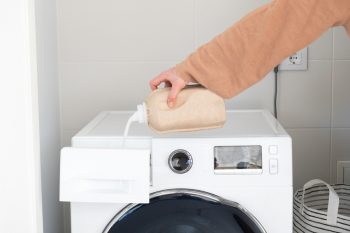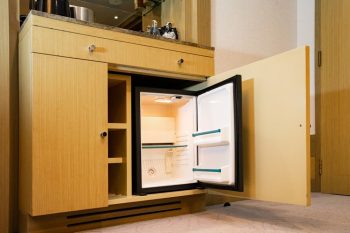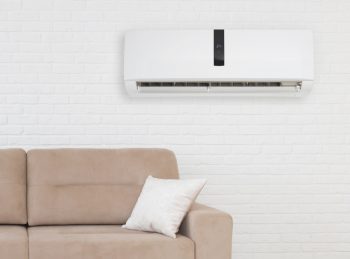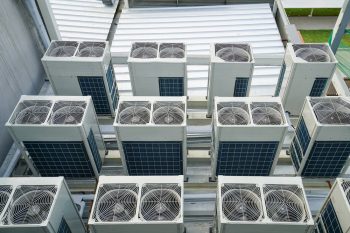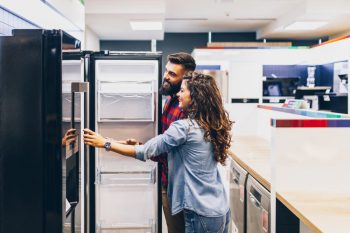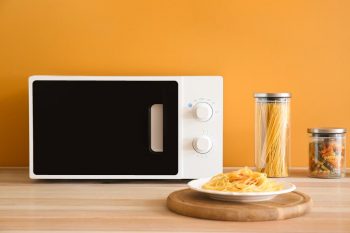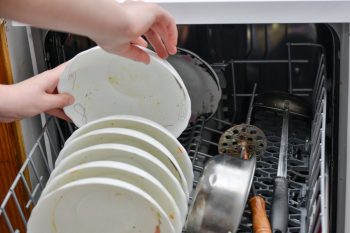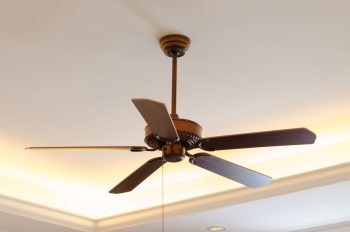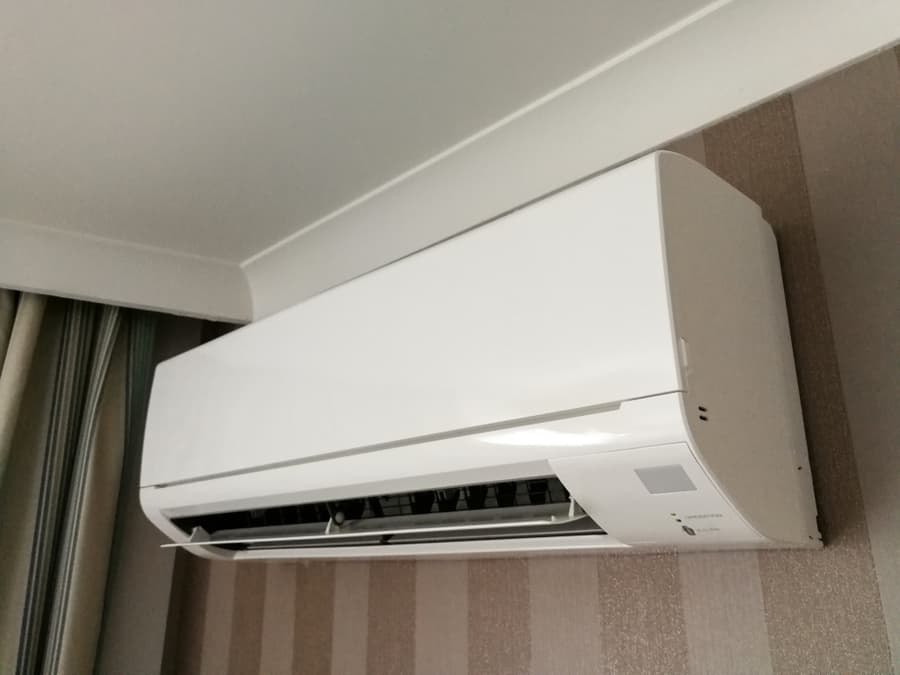
Air conditioners with in-built air ionizers are units that can purify the air in an indoor space using filters and emit negative ions that can bond with airborne particles resulting in a reduced level of pollutants in the air.
Air ionizers aren’t only a trending technology, but they’re also known to help drastically improve the air quality in most indoor settings.
So instead of using several different stand-alone air ionizers, you can use an air conditioning unit with an ionizer which is a more cost-effective solution.
In this article, you’ll find out how air ionizers work, what they do, why you should consider getting one, and their drawbacks.
By the time you’re done reading, you should know everything you need to know about ionizers:
- You’ll learn how ionizers work, the different kinds of air-ionizing devices available, and the benefits and drawbacks of using such devices.
- Explore how this machine can help improve air quality in a certain space and its pros and cons.
How Do Air Ionizers Work?
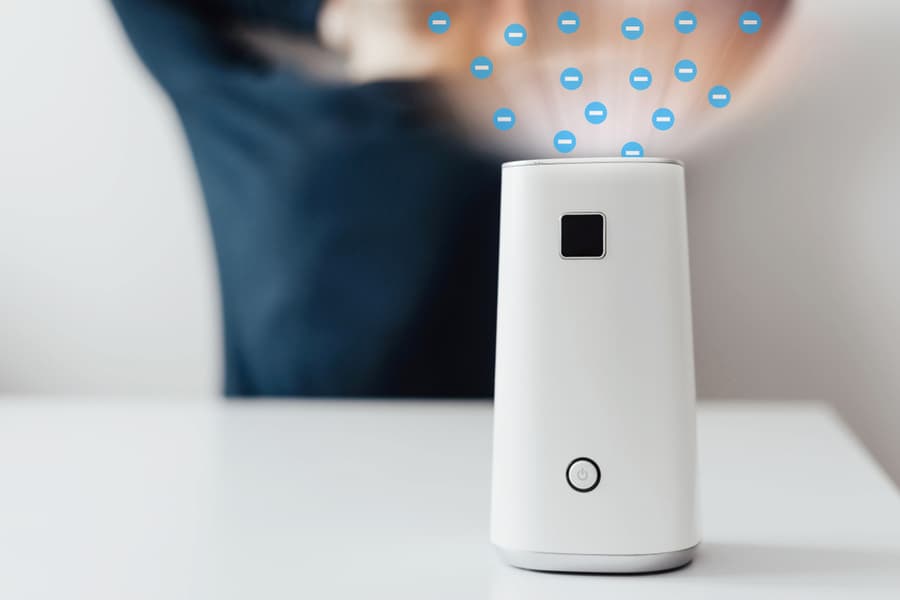
Most people don’t pay as much attention to the air quality in indoor spaces, like home and work, as in outdoor ones.
However, airborne particles such as dust, germs, and toxins can depreciate the air quality of an indoor setting.
You’re probably wondering whether air ionizers can help you clean the air indoors. Well, yes, they can, to some extent. Air ionizers use negative ions to eliminate certain airborne particles.
The negative ions bond with the smoke, dust, microbes, etc. (positively charged particles) floating around the room.
The joint union between the positively charged particles and the negatively charged ions becomes so heavy that they fall to the ground. You can eliminate these tiny bad guys using a vacuum cleaner or broom.
Ionic air purifiers work in slightly different ways. Instead of releasing negative ions, it draws in the ‘bad’ air and then uses metal plates and collection rods to collect the pollutants.
Unfortunately, the process is a little more complicated with air ionizers when compared to this.
Can an Air Ionizer Kill a Virus?
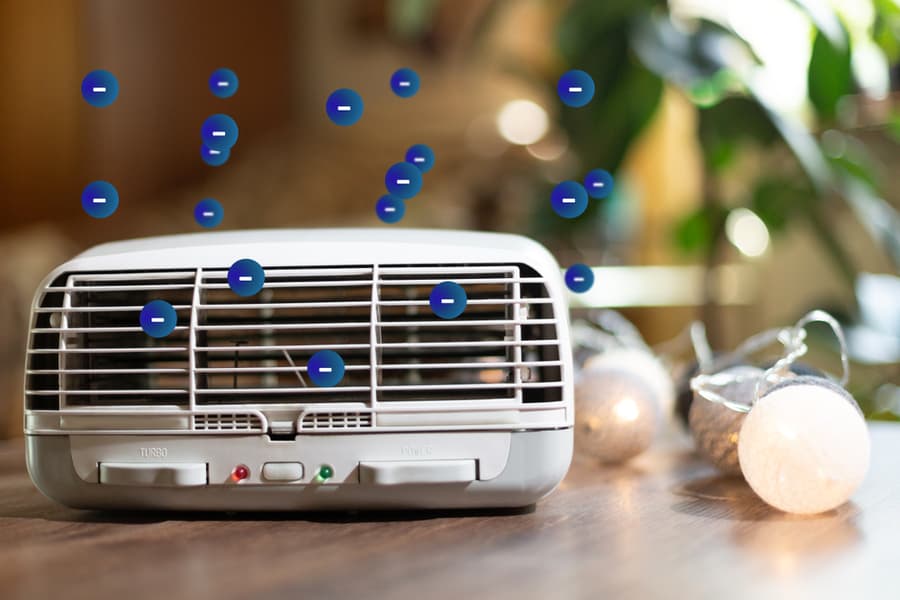
A review conducted in 2020 found that air ionizers produce a component known as ozone which can inactivate certain viruses on surfaces and in the air.
This colorless gas is formed when negative ions charge other airborne particles. It can inactivate a virus by ruining its membranes and genetic material.
In response to the recent global pandemic, many people have been installing air ionizers in restaurants, offices, and even homes. Their goal is to not only improve the air quality in their spaces but also help reduce the COVID-19 virus (SARS-CoV-2) levels that make you sick.
According to the scientific review highlighted above, the ozone gas can fight SARS-CoV-2 and is very effective against several similar viruses.
However, it’s not completely clear whether the ozone gas your standard air ionizers produce is just as effective, and more studies on this still need to be done.
Types of Air Ionizers
There are several different kinds of air ionizers out there. Some of the most popular ones on the market include:
1. Ionizer-Based Air Purifiers
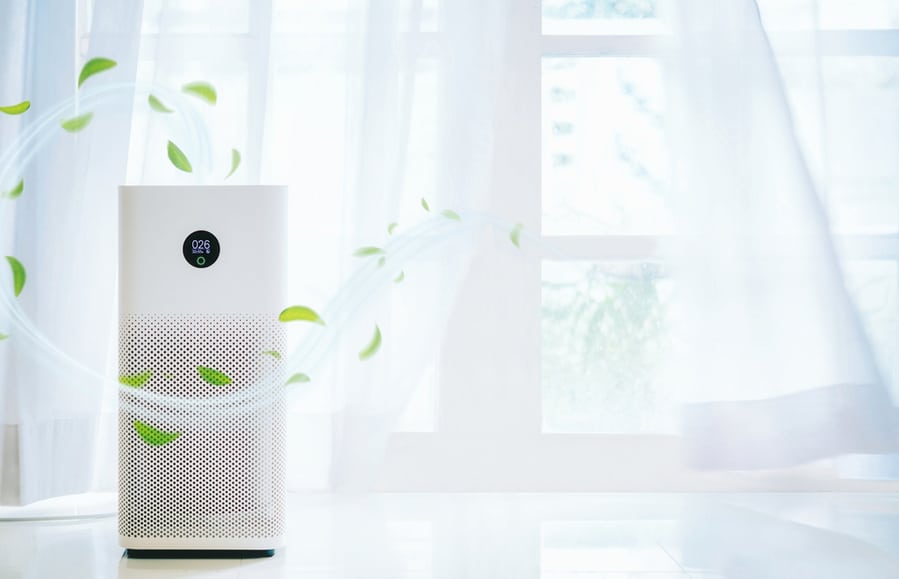
Air purifiers are devices that improve air quality by removing unwanted airborne particles. It’s also commonly referred to as an air sanitizer, portable, or room air cleaner.
In general, an air purifier uses a fan and filter to improve the air quality in an indoor space.
Unlike air ionizers, air purifiers eliminate pollen, microbes, and dust from the air. They are usually recommended for people who suffer from allergies and asthma.
2. Fans With Ionizers
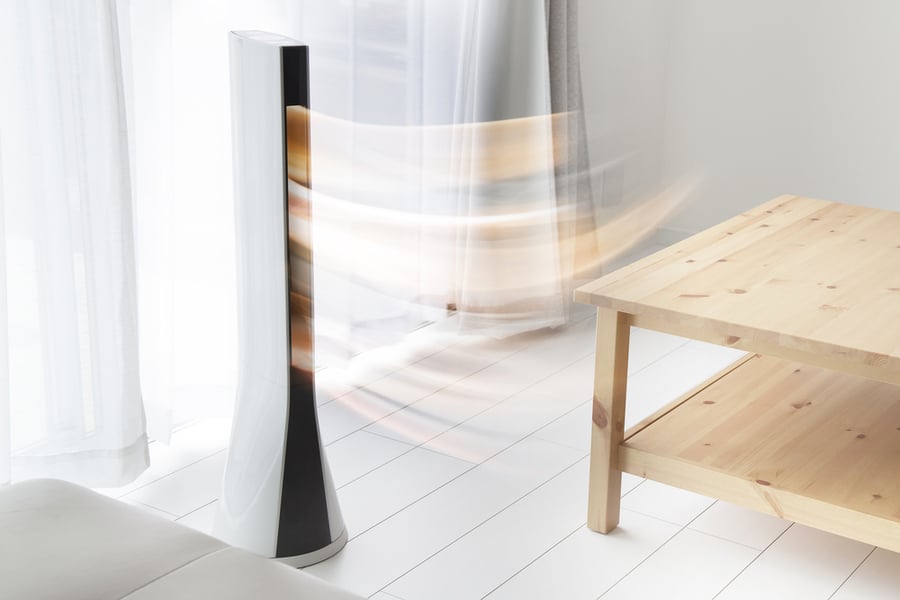
Fans use rotating blade devices to circulate the air in a room. They help to increase the ventilation in an indoor setting as well as to help cool the space down.
Some fans in the market have air-ionizing settings. These units promote air flow and circulate the air in the room while still releasing negatively charged ions.
You can try these out if you don’t want to break the bank on a new AC unit.
3. Bipolar Ionization

Bipolar ionization is a kind of tech that produces both negative and positive ions. It is normally used with devices such as HVAC units. However, it’s still a fairly new technology with limited research.
How To Know When Your Air Ionizer Is Working
Air Ion Counters- Air ion counters can measure the negative ions in a cubic centimeter. Dual cylindrical and parallel flat detectors are ideal for measuring low ion concentrations.
Most tests cost quite a lot to conduct, but sadly, that doesn’t mean they’re always going to be effective in whatever scenario.
Your case might be different or the exception. So make you seek professional advice before getting one.
Ordinary Voltage Testers- You can also use ordinary voltage testers to determine whether your air ionizer is operational. All you need to do is place it in front of the unit that has the ionizer.
If you hear it sounds like a thousand insects are flying inside, know it’s working.
When it comes to how long you should run the unit, it’s typically advised to run it only when the space is empty and has no one. You can run the ionizer however long you want when the space is vacant.
If your air ionizer produces ozone gas, it’s not a good idea to run it in occupied indoor spaces. However, if you need to run it when people are still there, ensure you open all the windows.
Benefits of Air Ionizers
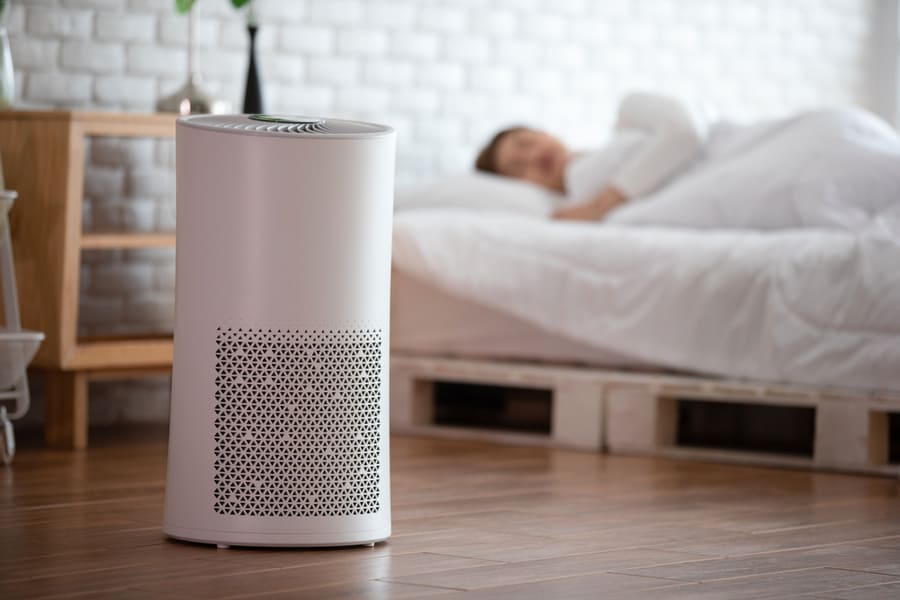
The negatively-charged ions that happen naturally are beneficial to one’s health. Therefore, oceans and green areas are loaded with these ions.
- Better Health – According to a review conducted in 2018, negatively-charged ions apparently can also decrease stress, increase immune functions, support mood, regulate sleeping patterns, and inhibit mold species, bacteria, and viruses.
- Better Air Quality – Air ionizers purify the air by releasing negative ions that help get rid of airborne bacteria, pollen, and dust which, in turn, can help lead to better health. Furthermore, given there’ll be a lot fewer bacteria floating in the air, you’re less likely to catch the flu or cold.
- Improving Mood – Negative ions can also help improve sleep quality and mood. They can even play the role of antidepressants.
Drawbacks of Using Ionizers
Besides the potential advantages of using air ionizers, unfortunately, these devices also have a few drawbacks. You might want to keep these in mind before you buy one. Below are some of the main drawbacks:
- Ineffective for Allergies and Asthma – Air ionizers can’t remove huge airborne particles, including those that can trigger allergy and asthma symptoms. So an ionizer won’t help you much if you’ve got allergies or asthma.
- Ineffective for Gases and Odors – An air ionizer doesn’t destroy gases and foul odors, including VOCs (volatile organic compounds). Volatile organic compounds are emitted from products such as adhesives, cleaning supplies, and paints.
- Releases Ozone – As highlighted earlier, air ionizers release ozone gas. This occurs when negatively-charged ions electrically charge positively-charged airborne particles. Although this gas can be helpful against certain viruses, it can also irritate the lungs and cause coughing, throat irritation, and chest pains.
Difference Between an Air Ionizer and Purifier
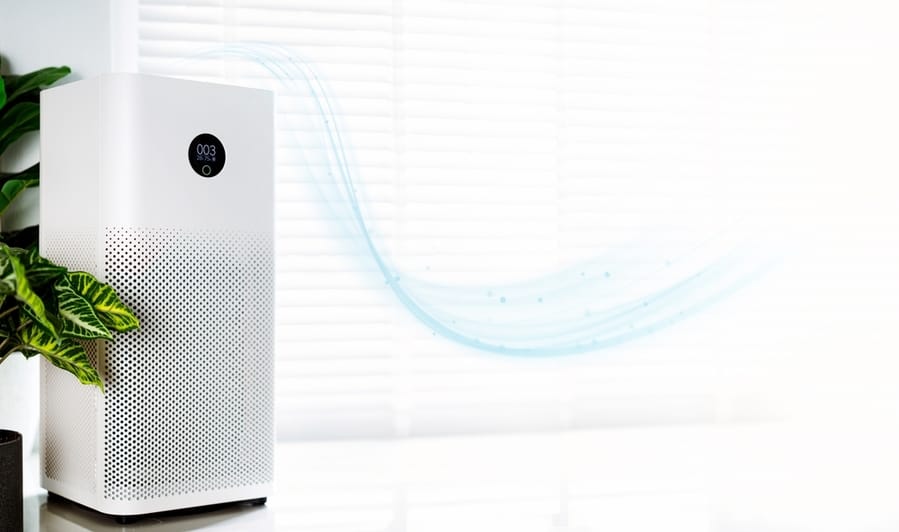
When it comes to area coverage, some air ionizers can purify indoor spaces that are as big as 3,500 square feet.
However, air purifiers typically cover areas much smaller than that, with the most powerful covering about 1,500 square feet.
Another difference is that ionizers are usually a fraction of the price of air purifiers, with some costing as low as fifty bucks. The price of an air purifier, on the hand, will start from around two hundred bucks and up.
As far as maintenance costs are concerned, you’ll have to pay for the extra power an ionizer needs. However, besides that, maintaining such a unit is practically free.
That’s not the case for an air purifier because you’ll need to replace your filter every 6 to 12 months, making its maintenance costs much higher.
Lastly, an air ionizer doesn’t remove pollutants, as they’ll still be present until you clean or vacuum them away. However, air purifiers have an almost 80% efficiency rate, meaning they can remove around 80% of the pollutants in the air.
Remember that not all devices are designed equally, and some are better than others.
Takeaway
An ionizer in air conditioners is a device that emits negatively-charged ions into the air. The negative ions then charge other positively-charged airborne particles, causing them to fall on the ground and collect on surfaces.
Some air conditioning units come with in-built ionizers that help clean the air, and a few can even release negative and positive ions.
Sadly, not all ionizer devices are equally good for you because some release harmful ozone gases.
With that said, people use these devices to improve the air quality in their indoor spaces. Great air conditioners with air ionizers can prove an incredible investment, and some of the most powerful models can even fight certain viruses.
Hopefully, you know much more about air ionizers in air conditioners and what they do to help clean the air. When using one, always follow the correct directions.
Frequently Asked Questions
Do Air Ionizers Have Side Effects?
Yes, some ionizers have side effects. These may include shortness of breath, chest pains, coughing, and throat irritation.
Certain ozone-based air conditioners with air ionizers have in-built ion generators.
Is Ionized Air Healthy To Breathe?
Exposure to or the inhalation of negatively-charged ions is fairly safe for human beings. Negative ions already occur naturally in the environment from waterfalls, lighting, and sunshine. However, the production of ozone gases from these air conditioners poses a health risk to humans.
Do Ionizer Devices Use a Lot of Power?
Fortunately, most air conditioning units with ion generators don’t typically need that much electricity. Most have a maximum power wattage of 35-210 watts, with even some of the biggest ones maxing out at 100 watts. So you can easily run your air ionizer on a 15-30 watt setting.
Can an Ionizer Dry the Air?
No, air ionizers can’t dry the air. Air conditioning units with ion generators are mainly designed to improve the air quality in indoor areas and can’t reduce the humidity levels in that particular space.
The unit won’t touch humidity when purifying and improving the air in the space.

